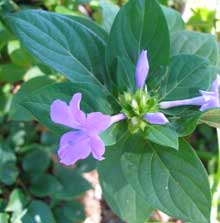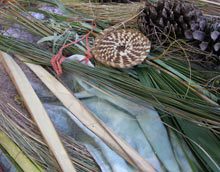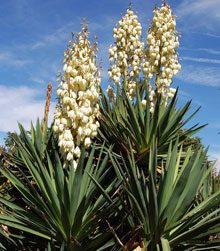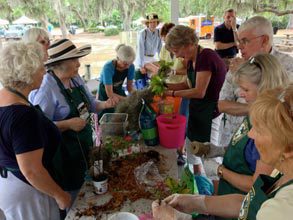 There are probably as many answers to this question as there are those who work the soil, and we could also have lots of the same answers in different orders of importance. Many of us garden for fruits, flowers, exercise, therapy, and perhaps an innate need to nurture. If you give me some dirt, compost, water, seeds, tubers, cuttings and bulbs, I can make a garden.
There are probably as many answers to this question as there are those who work the soil, and we could also have lots of the same answers in different orders of importance. Many of us garden for fruits, flowers, exercise, therapy, and perhaps an innate need to nurture. If you give me some dirt, compost, water, seeds, tubers, cuttings and bulbs, I can make a garden.
I was told years ago that a garden is a metaphor of life. It can be a place or a goal; it can give us pleasure, pain, life and death.
It can be small in scale and large in purpose. To my British friends, it is the outside of the house and “working in the garden” sounds so much nicer than “working in the yard.” At the top of the list of “Reasons to Garden” are beauty and taste. Are they the same thing to everyone? I don’t think so. I had a girlfriend who looked me in the face and accused me of being tacky and even said, “you have no taste.” I now defer to someone else in matters of design and taste, but mine is mine, even if it’s tacky. Thank goodness we don’t all enjoy the same things, and the eyes of the beholder see various beauties.
Our senses are awakened in earthy scents of garden soil, mint or rosemary. We see the light and shadow move across the landscape, all of the colors of the rainbow, some subtle or dramatic, in hues and tints. Sounds of the garden may include the rustling leaves, wind chimes, water sprinklers, crickets and frogs. Touch a leaf and feel fuzzy, smooth, rough, spiny, or stinging ouch! Tread Softly is the name of a garden weed that will burn the skin it touches ’til you finish weeding. Flavor is better when vegetables and herbs are eaten fresh from the garden. The essential oils and vitamins diminish the further a food has to travel to your plate.
Gardeners teach children to garden. My grandparents were gardeners. It is a life skill that can help young people know where food comes from and could keep them out of trouble. The South Carolina Department of Agriculture has embraced a program called “Eat Smart, Move More.” There are many folks who could benefit from access to fresh fruits and vegetables to counter obesity, heart disease, and other diet related health problems. The ESMM program provides incentives to schools, faith and community groups to garden. Community gardens are sprouting up locally and worldwide, giving people access to healthy produce.
Horticulture therapy is recognized as a vehicle to mental health. A Gardener plans, cultivates the soil, works with others or independently, nurtures, does meaningful work, and harvests the bounty. The added benefits are the interest in and observation of nature and the mysteries of life which bring us back to the metaphor of a Garden.






